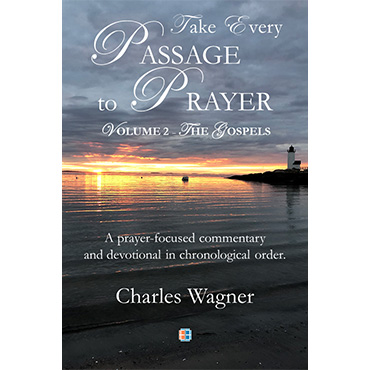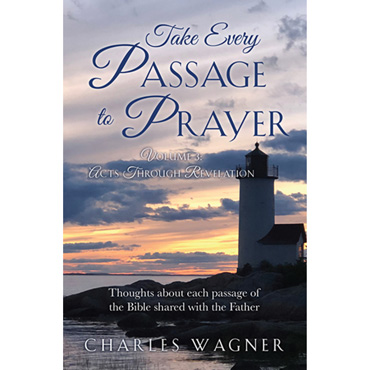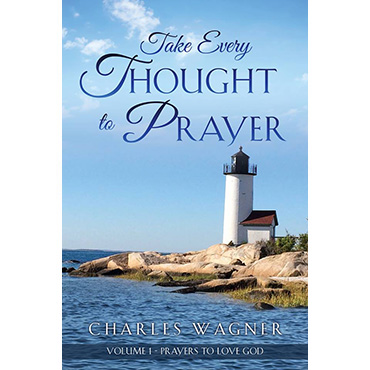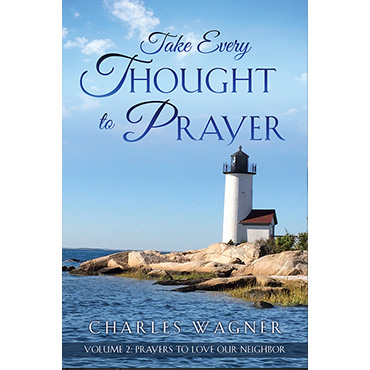The Gramazin Blog
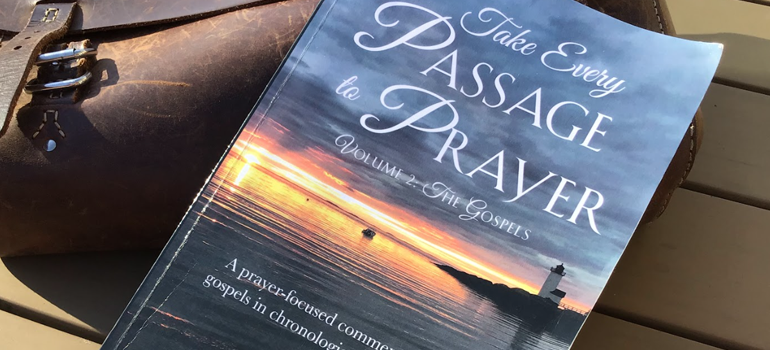
Jesus Feeds Five Thousand
Take Every Passage to Prayer - Volume 2, The Gospels
Tuesday July 23, 2024
Matthew 14:13-21, Mark 6:30-44, Luke 9:10-17, John 6:1-15
Father, please help me to have the courage and confidence I need to tell others about what Jesus has done for me and for my brothers and sisters in Christ. I know there are countless things that He does in the lives of people I don't know. Jesus is awesome and He is my King. He rules over all things. Father, I ask that You make me the kind of man that attracts people to Jesus. I want to exemplify His character by the things I do, the things I say, and by my countenance. Please give me a heart of compassion for strangers, especially strangers in crowds. Please help me to live to meet the needs of others. I ask for Your help as I work to put into practice the Great Commission. I also ask that You give me the kind of faith where I believe that Jesus will do miraculous things. Help me to be a man of efficiency and productivity, not wasting precious resources in ministry. Father, help me to inquire of You and, when I do, I ask that You spell out, in detail, Your solution for whatever concerns me. Your solution is the best. When I work in ministry, I ask that You multiply my work; that it will bear fruit for the Kingdom of God exponentially more than the work I put into it. Father, help me to repent of my rebellion and sin and to turn from my wicked ways. Help me to believe, at all times, that Jesus is the Son of God and, therefore, there is nothing He cannot do. Finally, please use me to share the Bread of Life with people who are hungering for a relationship with God. Amen.
Father, some time has obviously passed since Jesus sent out his disciples. He had instructed them to go in pairs from village to village, staying in the homes of those who were hospitable to them. This implies that the time of their journey was at least a few days if not a few weeks or longer.
What did Jesus do while they were gone? We don’t know. It is not recorded in scripture. However, the absence of any description of what Jesus did while they were gone implies four things:
- It is the disciple’s testimony that was the source of the gospel accounts. If at least one of the disciples was not present to observe and hear what Jesus did and said, then what He did and said was not recorded by Matthew, Mark, Luke, or John.
- The absence of any information about what Jesus was doing while the disciples were out ministering to the villages is evidence that the disciples did in fact go out two-by-two, ministering to the villages. If one or more disciples had stayed behind, we would read today in Your Word what Jesus did while the other disciples were traveling around the region.
- With these points in mind, our confidence in the integrity of the Word of God can increase. If the disciples were inclined to make up stories about Jesus, they could have answered the question about what Jesus did while they were gone with a fabricated story. They did not. It appears the disciples only reported in the gospel accounts what they saw and heard.
- Jesus was not in the business of self-promotion. He didn’t share with us what He did when His disciples were away from Him. This is consistent with Jesus’ continual request of those whom He has healed to not tell anyone. Jesus doesn’t want to be a celebrity. The only reason we know what we know about Jesus’ life and ministry is because His disciples, inspired by the Holy Spirit, reported on it. We don’t know what we know about Jesus because of Jesus’ “look at me” self-promotion campaign. There was none.
So what was Jesus doing while the disciples were away? Father, I have some blind guesses:
- He spent time with You in prayer as He camped in a remote place for a few days or weeks. He most likely prayed for the ministry of each disciple while they were away.
- He taught and healed individuals privately, one-on-one. Your Word tells us in John 20:30-31 and John 21:25 that Jesus did many more things than were reported in the gospel accounts, enough things to fill so many books that the world could not hold them all. We get a clue that this might be the case because we are about to read that Jesus wanted to retire to a remote place to rest when His disciples returned from their ministry.
- He made arrangements to move out of His home in Capernaum as He is about to begin His journey south that will lead Him to the cross of Calvary. He may have distributed whatever possessions He had to neighbors.
- Whatever Jesus did was consistent with His holy and righteous character and His walk with You. No, He did not do godless things that modern day secularists would love to report that He did.
It is likely that Jesus had scheduled a time and place to meet up with His disciples upon their return from their missionary journey. The text tells us that they reported to Jesus what they had done while they were away. The text does not share with us how that discussion went. Was Jesus pleased with their report? Was He displeased? We don’t know. It is likely that the disciples shared with Jesus specific encounters they had with people, asked Him questions about them, and Jesus taught them about ministry in response. Father, it was Your sovereign decision that 21st century readers of Your Word did not need to know the details of what was discussed in these conversations.
During the course of the debriefing, Jesus was informed that John the Baptist had been executed. Being fully human, Jesus needed to grieve privately. He had known John since the two were infants. John’s mother Elizabeth had been a dear friend of His mother, Mary. While Jesus experienced personal grief, He also grieved the work of sin and evil in this world that would lead to the beheading of a man of God. His human nature was most likely also burdened with the reality that this same Herod Antipas who beheaded John the Baptist would soon condone His own crucifixion.
However, as much as Jesus wanted to be alone to grieve, He could tell that His disciples were exhausted from their missionary journeys. They needed a mini vacation. Jesus invited His disciples to join Him on a retreat to Bethsaida, the hometown of Andrew, Peter, and Philip, on the far shore of the Sea of Galilee.
The text tells us that Jesus, and presumably His disciples, got into a boat(s) to travel east along the coast to the region of Bethsaida. The text suggests that crowds of people watched the boat(s) just offshore, keeping pace on foot with the progress of the boats. In fact, the crowds were waiting for Jesus when He disembarked from the boat. The text tells us that there were approximately 5,000 men in the crowd.
We read that Jesus had compassion on the crowd. He viewed them as sheep without a shepherd. He healed many of them who were sick. The crowd, captivated by what Jesus was doing, was most likely quiet and laser focused upon Him. It was clearly a tremendous opportunity for Jesus to teach that He would not ignore. He went up on the side of the mountain, with His disciples, and sat down. He taught the crowd for several hours about the Kingdom of God. He may have spoken about prophecies of the Old Testament and how He is the fulfillment of them. As the Bible records in other passages. it is likely that Jesus spoke about repentance. It is also likely that Jesus revisited many of the themes that we read about in the Sermon on the Mount, such as what it means to love your neighbor.
Father, do we see broken people when we look into a crowd? Do we see people in need of healing? Do we see people who are lost and in need the Kingdom of God? Do we see that each crowd is a mission field? Or do we ignore the strangers that we bump into on a crowded city street? Father, may it be said that we look at crowds in a new way the souls that cross our paths and bump into us need the gospel of Jesus Christ and we will not be shy to share it with them. May we share the wisdom of Your Word with those strangers who are confused about the challenges of life. At the very least, lead us to pray for the strangers who we pass along the road.
It became evening. It is likely that at one point a disciple, most likely Philip, whispered into Jesus’ ear, while He was teaching the crowd, that the people were hungry. This was not a revelation to Jesus. He already knew they were. The disciple told Jesus to send the people home so they could go into the villages and buy food.
The text tells us that Jesus fully intended to perform a miracle by feeding the crowd right then and there. However, He wanted to test the faith of His disciples.
“Ok, Philip. You lived in this area. Where’s a good place for them to get some food?”
I can imagine a discussion ensued about good “restaurants” in the area. Andrew and Peter, who were also natives of Bethsaida, joined in as well. However, Jesus shocked them by saying the crowd doesn’t need to go to anywhere. The disciples could feed the huge crowd right there and then.
“Jesus, that doesn’t make sense,” Philip replied. “It would cost us about half of our annual income to buy enough food for each person to have just a bite. Are You asking us to spend that kind of money?”
The disciples did not pass the test. Instead of coming to the conclusion that Jesus could feed the crowd miraculously, and that nothing is impossible with Him, they chose to be practical and conventional. They had witnessed Jesus calming a storm at sea. However, that experience did not translate into, “Hey, Jesus, You could feed everyone here miraculously!” Father, the rebellious human heart, and even the heart of many believers, stubbornly refuses to believe that You can do the miraculous. How many people through the ages experienced unanswered prayer because they truly did not believe You would perform the miracle You were prepared to do?
Displeased with His disciple’s lack of faith, Jesus asked them how many loaves of bread they could find in the crowd. The disciples meandered through the crowd asking who has bread. Andrew came back and reported they found a boy who had five small barley loaves and two small fish. Father, I can imagine that Andrew was irritated. He most likely thought to himself, “why is Jesus wasting precious time looking for a needle in a haystack? There isn’t enough food here to feed this crowd!” When he reported to Jesus about the boy’s food, Andrew’s body language most likely revealed his disapproval of Jesus. Ignoring that, Jesus asked for the boy’s food to be brought to Him.
Jesus told the disciples to seat people in groups of 50 and groups of 100. Why? I can imagine this served two critical purposes:
- Crowd control. Instead of everyone fighting for position to receive food from Jesus and the disciples, wherein weaker people would be prevented from accessing the food, the organizing of people into groups assured that everyone would receive the food, including the weak and feeble.
- Distribution logistics. This enabled the disciples to calculate which groups had been fed and which groups had not. Therefore, nobody received an extra helping while others had not yet received their first helping.
Father, we don’t think much about it. However, ministry is also about logistics. If our goal is to send 10,000 Bibles to Lagos, Nigeria, we must face logistical challenges of raising funds, purchasing, and shipping the Bibles overseas, and distributing the Bibles to the residents of Lagos. Ministries need those with good business and administrative minds. They are equally as important as the most spiritual-minded people on a ministry team.
After giving thanks to You for the bread He had received, Jesus began to pull pieces off of the loaves of bread and to hand them to the disciples to take around to the groups of people. The text tells us that everyone in the crowd ate enough bread to feel satisfied (“full”). Concerned about not wasting anything, Jesus instructed the disciples to collect the bread that was not consumed. They filled twelve baskets with the leftover broken pieces of bread.
The text tells us that the people praised Jesus as the Prophet who was to come into the world. They got it or sort of. He was the long-awaited Messiah promised in the Old Testament. However, they didn’t really get it. They thought that the Messiah would be a political savior. I can imagine the people thought He would be Mosaic, freeing the Israelites from bondage to the Romans. Others may have imagined Him to be like Joshua, leading a military revolt against Rome that would reclaim the land from the Romans. They were ready to appoint Him as their king, like David, the King of the Jews. Had Jesus encouraged or embraced such a title, He would have given Herod Antipas cause to arrest Jesus as a revolutionary. He wouldn’t have hung on a cross next to two criminals. He would have been one of three criminals. The people wouldn’t have cried, on the day of Jesus’ crucifixion, for the release of the revolutionary leader named Barabbas. They would have cried for the release of Jesus, perhaps sparking a violent conflict in Jerusalem between the people and the Roman army. In such a case, Jesus would not die innocently on the cross for our sins. He would die with guilt for having led an insurrection against Rome. The text tells us that the people were so excited about the possibilities of Jesus as their political savior that they were going to force Him to accept the role regardless of His willingness to accept it. The text tells us that Jesus “got out of Dodge”, so to speak, and escaped to a mountain to be by himself. I am confident that He wanted to be alone with You, praying for strength and wisdom to stay on course with His mission to save the world from their sin and to not become entrapped by the temptation of an earthly kingdom. He no doubt prayed that the same people calling for Him to be a political savior would embrace Him as their spiritual savior, saving them from their sin.
Father, there are many lessons to be learned from the feeding of the “5,000”. A few of them come to mind:
- Your solutions are the best. We have learned that Your ways are far more efficient than our ways. If Jesus and His disciples had dispersed the crowd and sent them into the villages to buy food, the local villages would have become chaotic. They were not equipped to feed essentially “250 busloads” (40 per bus) of unexpected diners descending upon them. Many in the crowd would have to wait late into the night for other diners to finish. It is a certainty that many from the crowd would have retired to their homes without ever having had a meal. Their unsatisfied hunger would turn them surly against their encounter with Jesus. However, Your way the feeding of the 5,000 by Jesus breaking bread miraculously - prevented all of that chaos. Will we learn, Father? Will we learn to trust You with the miraculous? Your way will always prove to be the most practical, efficient, and productive choice. You are not the God of wasted time or wasted resources.
- Serve the needs of others. While Jesus’ primary concern is for the salvation of people’s souls, He is also concerned with providing them with their basic material needs food, clothing, and shelter. No evangelistic effort can succeed when the suffering of the people is ignored. If a poor man is crying out for something to eat, He can only hear and embrace the gospel after he is served food. The Holy Spirit has led millions of believers throughout the last 2,000 years to create ministries of compassion, providing needy people with the essentials of life.
- Jesus multiplies our meek and humble service to Him. A weak and seemingly insignificant young child brings a small meal to Jesus. Jesus multiplies that meal and feeds over 10,000 people with it. Similarly, a humble and meek believer comes to Jesus and says, “use me, Lord. I don’t have much to offer but use me anyway.” Jesus multiplies such a believer’s surrender to Him and touches many lives for Christ.
- Jesus is the “Bread of Life”. As I will discuss shortly in the passage of John 6:22-71, Jesus states that He is the Bread of Life. The feeding of the “5,000” (or 10,000 plus) illustrates this point. Jesus distributes Himself to each one of us and, when we receive Him, we feel full (satisfied, complete) when He does. There is nothing so satisfying as to live in total submission to Christ. Those who do experience a peace and joy, regardless of the circumstances, that the world simply cannot understand. If a man wants to experience genuine contentment in life, he should receive the “Bread of Life” (Jesus) that is generously offered to him by You.
- Every disciple of Christ will be blessed by their devotion to ministry. After the feeding of the crowd, there were twelve baskets full of bread scraps, one for each disciple. Each disciple did the work of ministry, and each disciple experienced a bounty of fruit. You are eager to bless each and every believer who desires to serve Your Kingdom.
- The Great Commission rehearsed. Father, I can imagine Jesus facilitating the training of disciples at a conference retreat. At some point, He would send each disciple to a different intersection nearby, asking them to serve the people whom they find there. When they returned to the classroom, Jesus would use their experience as a metaphor to discuss how He will soon send them to Jerusalem, Judea, Samaria, and to the ends of the earth (Acts 1:8). Father, I can imagine the disciples “practicing” the Great Commission on this hillside. Each of the groups of 50 or 100 metaphorically represented a village, a town, or even a nation. The disciples were sent to distribute the Bread of Life to communities where people hunger for spiritual food.
- The Passover Bread of repentance. The text tells us that the feeding of the “5,000” occurred around the time of Passover, approximately late March, or early-to-mid April. The eating of unleavened bread, which is bread without yeast, is a critical part of the Passover celebration. It represents living a life without the “yeast” of worldliness and sin. It represents living a life of repentance and surrender. The text tells us that the boy had five loaves of barley bread, bread that is known to be unleavened. Jesus is calling each person who ate the bread to a life of repentance.
- Elijah and Elisha are outperformed. The people love to talk about Elijah. Many consider him to be the greatest of prophets. Jesus is often compared to him. However, Jesus is greater than Elijah. Elijah sustained one loaf of bread of a widow until the rains came (1 Kings 17:7-24). Jesus fed over 10,000 people with five loaves of bread. Elisha fed one hundred men with 20 loaves of barley bread (2 Kings 4:42-44).
- The new manna Jesus is the Son of God. In Psalm 78:24-25, we read that You rained down manna from heaven for the people of Israel to eat. You gave them the grain of heaven, the bread of angels, sending the people all the food they could eat. Jesus is clearly identified as the Son of God by doing the same thing in the feeding of the “5,000.”
Father, I thank You for the many things we can learn from the feeding of the “5,000”. Amen.
What happened to the women, who supported Jesus in ministry, while the disciples were away? My guess is Jesus gave them a break and allowed them to go home to spend time with their friends and families. Or they too went out two-by-two in ministry. However, in the culture of the time, where women were less respected than men, that seems less plausible.
It is also likely that Jesus, because of His fellowship with the Father and with the Holy Spirit, already knew what each one of His disciples had encountered on their missionary journeys. He was prepared for a discussion with each disciple before they returned to Him.
The text tells us that the Jewish Passover was near. It is likely that these 5,000 men were traveling with their families on journeys related to the Passover. If we assume at least 3,000 of the men were married (+3,000) , and each of them had at least two children (+6,000), the actual number of people in this crowd is well-over 10,000 people. When referencing this event, I will refer to “5,000” from this point forward, implying there were most likely far more than that number.
In our day, one can buy a meal at, let’s say, a Panera Bread for $ 15. Therefore, it would cost $ 150,000+ to feed such a crowd today. Is that too expensive? Ok, let’s buy each person in the crowd an Everything bagel for $ 2. It would cost $ 20,000 to feed the crowd. According to information from the Internet, the typical fishermen’s salary in 2021 is $ 43,000. This would fit the text that says it would cost half a year’s wages just to give the people a bite of food.
The Holy Spirit clearly moved the boy’s mother earlier in the day, leading her to pack for her son five loaves of barley and two small. The Holy Spirit was plotting a miracle.
How did the disciples take this boy’s food away from him? By force? The crowd would not have allowed that to happen. Given Jesus’ deep love for children, I’m confident that was not the case. It is most likely true that the boy was asked if he wanted to meet Jesus face-to-face. Jesus then asked the boy if He could use the boy’s food to feed the crowd. I can imagine the boy had the faith that the disciples did not. He was eager to see the miracle that Jesus would perform with his food.
A crowd of 10,000 segregated into groups of 100 would total 100 groups. The same crowd segregated into groups of 50 would total 200 groups. Therefore, there was somewhere between 100 to 200 groups of people seated on the grass on the hillside.
What does this look like visually? While I am only guessing, I can imagine two possibilities. When Jesus tore off a piece of bread, the bread expanded to replace the section that had just been torn off. However, if that is the case, there wouldn’t be twelve basketfuls of scraps of bread left over. There would be five full loaves of bread as if no one had ever had a bite. The second possibility is more likely to me Jesus would tear off a tiny piece of bread, perhaps no larger than a crumb, and that crumb would expand in His hand to the size of a portion for one person. The five loaves of bread were steadily consumed by Jesus picking one tiny crumb at a time. The crumb that could be hidden in His clenched fist would become a full piece of bread when He opened His fingers.
There’s no mention in the text where the twelve baskets came from. It is unlikely that people were carrying food in other baskets. If so, this miracle loses its power. It may be that there were no baskets, but the disciples calculated it would require about twelve baskets to contain the leftovers they had gathered. Or, the people in the crowd were carrying baskets that did not contain food, such as baskets of clothes for the Passover journey. It may also be that the disciple went into the nearest village and bought twelve baskets and returned to the mountain side with them. That seems to be the most likely explanation.
Psalm 37:25-26; Proverbs 19:17, 21:13, 22:9, 25:21, 29:7; Isaiah 58:6-10; Ezekiel 18:5-9; Matthew 25:34-40; Luke 3:11; Romans 12:20; Galatians 6:2; Philippians 2:4; James 2:15-17; 1 John 3:17-18.


